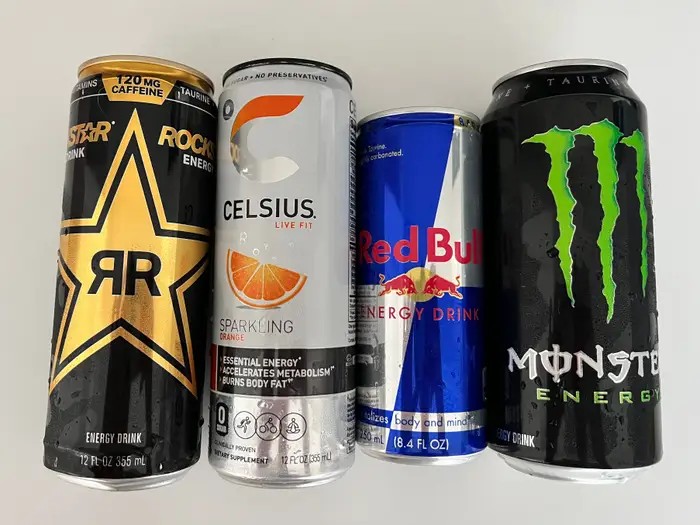Are Energy Drinks Really A Health Risk?

Convenient, tasty, and appealing with bold can designs and flavors, energy drinks are a favored pick-me-up option. Energy drinks bring in substantial revenue in the retail food and beverage industry; as reported by the Statista Consumer Market Outlook, roughly 159 billion U.S. dollars was the worldwide revenue of energy drinks and sports drinks in 2021. That figure is only expected to go up by 2027, calculated at just above 233 billion U.S. dollars. If energy drinks are another source of caffeine, like coffee, then what is the risk?
Side Effects of Energy Drink Sensitivity
Energy drinks can result in intense side effects for two reasons: not only are the caffeine levels very high but they are also loaded with an overabundance of sugar, which both have stimulating effects. For example, a single 8.4 oz. can of Red Bull has 80 mg of caffeine and 27 grams of sugar. The following side effects are indicators of too much caffeine consumption:
- Elevated heart rate and blood pressure
- Insomnia
- Jitteriness or shakiness
- Headaches
- Anxiety or irritability
Energy drinks can quicken dehydration.
Caffeine is a natural diuretic that promotes urination and water loss in the body. The risk of drinking energy drinks during exercise or in hot weather is much more substantial. Studies have shown that elevated heart rate, body temperature, and increased perceived exertion levels are noticeable during extended physical activity with a 1.5% dehydration level. Caffeine is also linked to altered plasma volume and reduced cardiovascular performance during exercise due to sodium depletion caused by caffeine while urinating.
Energy drinks promote tooth decay.
One Swedish study has proven a solid correlation between energy drink consumption and tooth decay. A closest related analysis was demonstrated by Marshall et al in children from the United States. Energy drinks were linked to an expedited tooth decay increase of roughly 2.4 fold, mainly due to excessive sugar content and low pH. There is also an elevated risk of cervical dentin hypersensitivity due to the stripping of the teeth's smear layer, as discovered by Pinto et al.
Do Children Face Greater Health Risks From Energy Drinks?
Due to their smaller body size, children face a greater risk for heart complications, which may be severe or even life-threatening. Increased insomnia and decreased attention span and concentration throughout the day may additionally pose problems for children drinking large quantities of caffeine. Therefore, it's advised that children abstain from caffeine consumption, as The Academy of Pediatrics recommends.
The abundant amounts of sugar in energy drinks also pose substantial health risks for children - more frequent cavities, becoming overweight or obese, and the increased likelihood of developing Type 2 Diabetes are risk factors. Water and low-fat milk are healthier alternatives for children who engage in sports or are physically active.